CCC2 Irreversibility
Editors Tom Cohen and Claire Colebrook
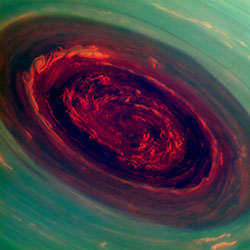
If the classic broad-tent platform of Critical Climate Change was, and remains, a tracking of the mutations and transformations which ‘climate change’ and the logics of Anthropocene extinction open, Critical Climate Chaos: Irreversibility would weaponize what might be called the second phase of ‘the Anthropocene,’ which occurs as the tipping points speculated over in ‘Anthropocene 1.0’ click into place to retire the speculative bubble or phase (Anthropocene Talk). Irreversibility takes hold. The material unfolding of accelerating feedback loops proceeds on its own. Temporalities are dispersed, the memes of ‘globalization’ revoked. A broad drift into a de facto era of managed extinction events dawns. With this acceleration from the speculative into the material orders, a factor without a means of expression emerges: climate panic. It is within this second phase that the CCC2 Irreversibility series is situated, addressing this de facto war zone in its many avenues of arrival—the phenomenon of escapism, digitally managed ressentimentality, the quest for a cosmotechnics, irreversibility and its occlusion, the zones of the inanimate and tele-animate, the proletarianization of perceptual memory, tele-eugenics and financially engineered species splits. Critical Climate Chaos is a platform for these experimentations, now, outside of the ghost of left / right prescriptions and exculpatory dialectical villains (‘Capital’). What emerges when the Anthropocene mask comes off and the imaginaries of the to-come double down on opiates? Welcome to the Trumpocene.
Available for purchase worldwide through most online bookstores.
To contribute to the series, please contact Tom Cohen  and Claire Colebrook
and Claire Colebrook 
Advisory Board
- Yuk Hui – Leuphana University
- Sigi Jöttkandt – UNSW Sydney
- Nick Mirzoeff – New York University
- Daniel Ross – Ars Industrialis
- Arun Saldana – University of Minnesota
- Jared Sexton – UC Irvine
- Oxana Timofeeva – The European University at St Petersburg
- Stephanie Wakefield – The New School
The Nethercene: Ecocide and Inscription
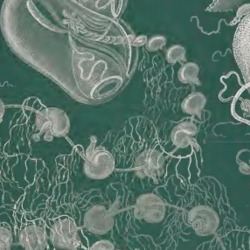
Taking in the vortices and reversals of the “post” pandemic anomie, The Nethercene sub-series responds to the exponential accelerations of the twin spirals of climate disaggregations and its accelerating race with A.I. to see which will outpace the other’s extinction promise - the “singularities” of tipping points passed dueling with a de-anthropomorphized system that refuses face. As wallpaper for this faux interregnum, the stupefactions of internet mnemotechnics and migration into screens and memes coincides with the purgings of academic and reading models - all this before an overarching politics of managed extinctions, plotted species splits, and planetary escape plans.
The palpable import of the critical innovations around the Anthropocene have been marked (we may now observe) by having had no import or effect despite the laudable desire to move, favored tool-kits in tow, out of the Anthropomorphic coding of the world. This sub-series questions the initial movement of that rebranding of already existing critical idioms that would turn to diverse “others,” objects (however hyper), animemes, the inorganic, all the way to gesturing toward a “great outdoors” - a retro-metaphoric escape from the Anthropomorphic legacy tied to extinction drives. Having played itself out entering the mid-2020’s as a war of the “cenes”, with the hope that claiming and probing radical otherness is “political” or leads to a longed-for “outdoors,” the Rorschach test that large-language A.I. recalls is not only the sheer exteriorization of hyper-marking systems, but an encirclement of the gesture of what is now dismissed as ‘high theory’.
The Nethercene opens the space of provocation for readers during this Potemkin transition by seizing upon and opening problematics of the inscriptive forces and demons before the screen projections of ‘consciousness’ coalesces - the netherworlds on which these spectacles depend. The Nethercene opens a space to the side of the ‘endgame’ logic of Anthropocene Talk’s panicked turn to claim ever greater “otherness” in a manner that has sealed the fate of the transitional decade we are leaving. By exploring the laproscopic order of inscription, hermeneutic blow out, referential panic, and Medieval tele-herding that offers distractions and options, this series takes up the remains of reading.
Titles
-
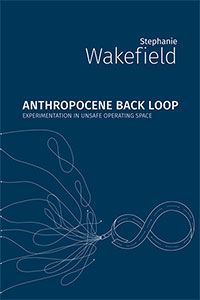
Anthropocene Back Loop
Stephanie Wakefield
-
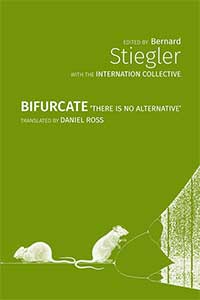
Bifurcate
Bernard Stiegler and the Internation Collective
-
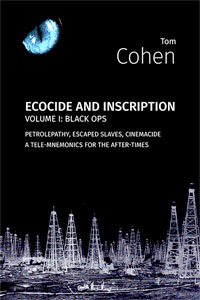
Ecocide and Inscription vol. 1 Black Ops
Tom Cohen
-

Exology
Martin Savransky
-
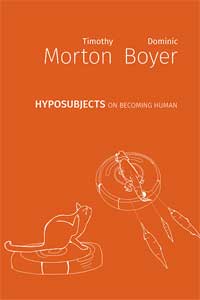
hyposubjects
Timothy Morton and Dominic Boyer
-
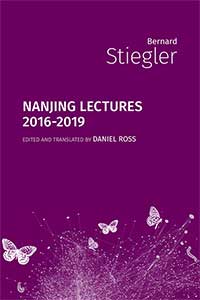
Nanjing Lectures (2016-2019)
Bernard Stiegler
-
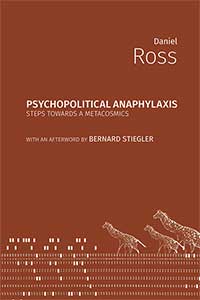
Psychopolitical Anaphylaxis
Daniel Ross
-
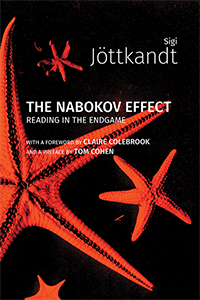
The Nabokov Effect
Sigi Jöttkandt
-
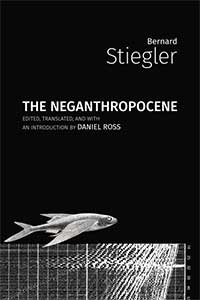
The Neganthropocene
Bernard Stiegler
-
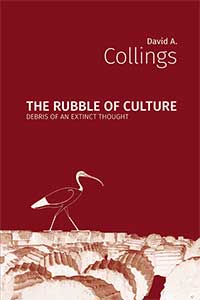
The Rubble of Culture
David A. Collings
